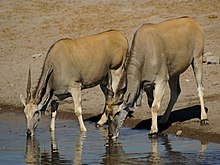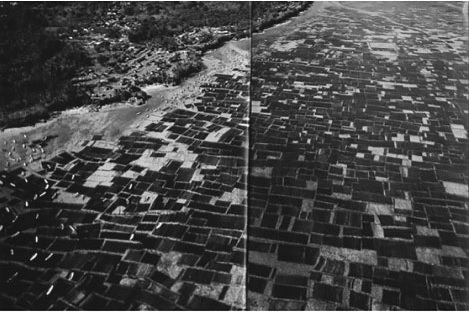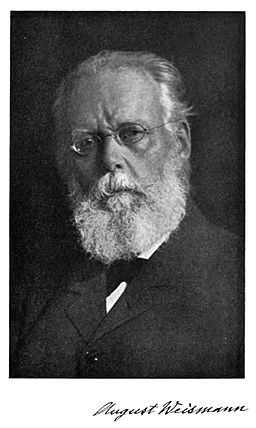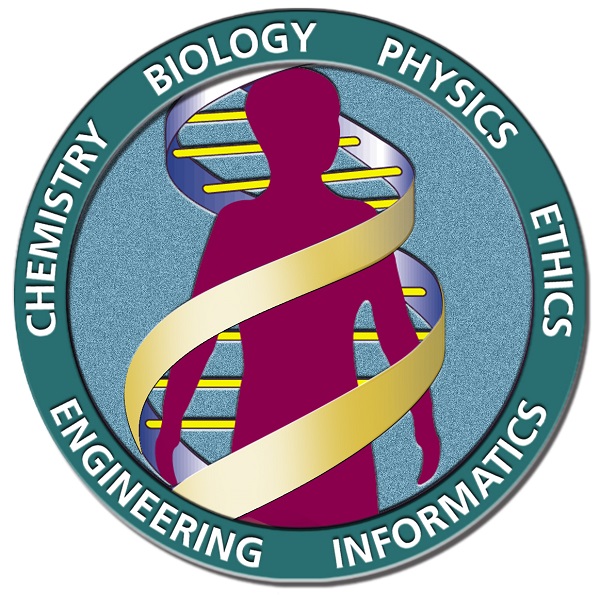Positive Health Online
Your Country

Does our Current Understanding of Epigenetics Now Expose Neo-Darwinism as Pseudo-Science?
listed in dna gene expression, originally published in issue 290 - November 2023
When Charles Darwin died in 1882 it took less than 10 years for August Weismann from Freiburg University to publish his theory The Germ-Plasm: A Theory of Heredity in 1893. Better known as Weismann’s Isolation theory, he convinced people that the germ cells (eggs and sperm) lived in total isolation from the somatoplasm (body cells) thus proposing the germ cells were unaffected by environmental influences.[1]
Weismann published his longer paper The All-Sufficiency Of Natural Selection (in English) also in 1893.[2]: By 1890, with his eyesight diminishing, he explained that natural selection was driven by ‘competition for nourishment amongst the germ cells’.
On these two papers, now found to be inexact, was based Weismann’s new philosophy of neo-Darwinism, with all Darwin’s understanding of the true role and power of the environment removed. Weismann should never have called it neo-Darwinism, for his was an emasculated version of Darwinism which should have been called Weismannism
By denying Darwin’s belief that ‘Conditions of Life’, or ‘Conditions of existence’ (Darwin’s terms for the environment) were collectively the power-pack propelling natural selection, Weismann created the illusion (accepted by British scientists but not French) that the environment was not particularly important, thus encouraging its use as a garbage tank, to the point where our waste products have now, 130 years later, polluted the entire planet, including everything from water in the oceans, rivers, and lakes; our soils, our foods, our atmosphere, indeed the very air we breathe. Leading to global warming, foul air; lifeless food, nutrient-starved soil, poor quality water, the list is endless. Including outer space, from old satellite junk, spent rocket bric-a-brac and the like.
August Weismann
https://commons.wikimedia.org/wiki/File%3AAugustWeismann.jpg
By Linnean Society [Public domain], via Wikimedia Commons
This work is in the public domain in its country of origin and other countries
and areas where the copyright term is the author's life plus 70 years or less.
Now, over a century later, epigenetics reveals how Weismann’s Neo-Darwinism is flawed. [3]
So have we misleadingly been following the pseudo-science of the late 19th century, having been taught by Weismann that the environment has little role in natural selection, thus encouraging its abuse to be used like a global trash can?
This was the question that (my now co-author) Professor Michael A Crawford posed. He was then heading the Department of Nutritional Biochemistry at the Nuffield Institute at the Zoological Society, London, and is now visiting professor at the Department of Metabolism, Digestion and Reproduction, Chelsea and Westminster Hospital, Imperial College, London, posed in the Spring of 1981. Asked about my views on natural selection, I confessed that it had never made much sense to me, thus initiating four decades of research into the subject.
This was ten years before the human genome project was started in 1991,12 years before its completion around 2003, when only 20+ thousand genes rather than the 130,000 they expected to find. Geneticists realized that something else was going on to do with how genes reacted with the environment. It took another 7 years to study what used to be called ‘environmentally induced variation’ – now called epigenetics – possibly after C H Waddington, a Scottish geneticist - and the publication of the above-mentioned Handbook of Epigenetics; the New Molecular and Medical Genetics.
HGP –Human Genome Project
https://upload.wikimedia.org/wikipedia/commons/f/f3/Logo_HGP.jpg
Three books later, ‘The Driving Force, Food and Environment’ and Nutrition & Evolution, and now our recently published ‘The Shrinking Brain’, Crawford and Marsh, 2023 (Authoritize, Filament Books, London) explains how Darwin was right all along, and the role of the environment is crucial in the brain’s evolution, its recent decline, the global rise in mental illness, and solutions for our children of the future. The European Brain Council's Brain Awareness Week, March 2023 recognized the ill-health of the brain as "a global health emergency".
The book is about the brain and its unique dependence on nutrition, which began with its origin in the sea around 500 million years ago when only marine nutrients were available. It is still dependent on the same marine nutrients, the lack of which explains the shrinking brain and escalation of mental ill-health.
We start with restoring Darwin’s writings on the imperative of the environment in evolution: a principle, savaged by August Weismann who cut off the tails of nine generations of mice and when the next generation still had tails, claimed Darwin’s “environment” was irrelevant. Yet, it led to the neglect of the environment, a travesty from which we still suffer today. The escalation of mental ill-health, if allowed to continue is as great a threat to the sustainability of humanity as global warming. So we provide solutions to the action which is so urgently needed. It is the future of our children and theirs which is at stake.
We propose three solutions in our book:
(i) No government considers the needs of the brain in its food and agricultural policies. They have recommendations that favour protein and body growth, but none for good fats (essential lipids) with which the brain is built. The needs of the brain must be prioritized as that is of far greater relevance to us as Homo sapiens than body size.
(ii) Reversal of desertification and greening the desert. Desertification encroaches the semi-arid ecosystems. These have the potential for the development of agroforestry, which can produce food, including honey, nuts, and oils, and support meat and milk-producing animals that are adapted to hot dry climates. We have the eland in mind which has been domesticated.

Eland drinking. (Wikipedia.)
(iii) Farming in the sea as in Japan, Oman, Bali, Indonesia, and other places. 71% of the planet is covered in water. Only one-third of the 29% is arable unless we bring the semi-arid into production which would add another third. The benefits are remarkable and three-fold.
Firstly, As the trees from agroforestry capture CO2, so do the kelp forests, phytoplankton. The microflora and some fauna including shellfish, sequestrate (capture) CO2. Thus helping fix climate change.

Sea Bed Kelp Farming – Bali, Indonesia
Indonesian Marine Farming
Secondly, Whilst kelp forests can provide food and habitat for hatchling fish, so it can be used as fertilizer to replenish farmland of trace elements lost by use over centuries.
Thirdly, providing DHA, iodine, and trace element-rich foods can reverse the escalation of mental ill-health, declining IQ and lead to brighter and healthier children.
As mentioned above the book also contains a section restoring Darwin's original thesis in which he saw the environment as the driver of natural selection. This aspect was cut from history by falsehoods and self-serving interests resulting in the gene-centred paradigm we have adhered to since the early 1890s.
Crucial to the argument, is the final paragraph of Chapter 6 in The Origin Of Species, in all 6 editions, where Darwin explains how the environment drives the evolutionary process.
Darwin's explanation of how environmental change caused variation was placed conspicuously at the end of chapter 6 "Difficulties of the Theory" – in all six editions from 1859 to 1872... reproduced for clarity as below:
“It is generally acknowledged that all organic beings have been formed on two great laws – Unity of Type, and the Conditions of Existence. By Unity of Type is meant that fundamental agreement in structure, which we see in organic beings of the same class and which is quite independent of their habits of life. On my theory, unity of type is explained by unity of descent. The expression of conditions of existence, so often insisted on by the illustrious Cuvier, is fully embraced by the principle of natural selection. For natural selection acts by either now adapting the varying parts of each being to its organic and inorganic conditions of life; or by having adapted them during long-past periods of time: the adaptations being aided in some cases by use and disuse, being slightly affected by the external conditions of life, and being in all cases subjected to the several laws of growth. Hence, in fact, the law of the Conditions of Existence is the higher law; as it includes, through the inheritance of former adaptations, that of Unity of Type.”
By understanding Darwin's mechanism we can clearly see that he rated the power of the environment way over that of natural selection itself: that selection worked as a result of the infinite power of all environmental pressures of life’s conditions of existence: of light and dark, humidity, atmospheric pressures, temperature, physics, and chemistry, thus food and nutrition.
Clearly "Survival of the Fittest" was a misunderstanding by philosopher Herbert Spencer... what Darwin wrote was that those species which thrived were "best fitted to" the physics and chemistry of their environment. The meaning of the former is of course entirely different from the latter.
In summary, the understanding of epigenetics reveals Weismann’s ‘Isolation of the Germplasm’ and ‘The All-Sufficiency of Natural Selection' on which neo-Darwinism is based, as pseudo-science from 130 years ago. For epigenetics demonstrates the genetic mechanism is neither isolated from environmental impact forces, nor is natural selection 'all-sufficient'. (Ref: www.davidmarsh.org.uk )
Weismann's legacy has left us with a polluted planet, global warming, and a global mental health crisis. Through understanding the environment’s true role in evolution we aim to restore Charles Darwin’s original thesis, recognize his brilliant foresight, and realize that he was undoubtedly amongst the greatest champions of environmentalism.
References
Ref 1. Darwin's passionate environmentalism or the dangerous fallacy of the 'All-sufficiency of natural selection' theory’ January 2012, Nutrition and Health 21(1):76-90. DOI: 10.1177/0260106012437548 . Source; PubMed; Author: David Marsh.)
https://pubmed.ncbi.nlm.nih.gov/22544777/ https://www.researchgate.net/profile/David-Marsh-2
Ref 2. Weismann A. The All Sufficiency of natural selection. In Contemporary Review, 64:309-38; 596-610. 1893.
Ref 3. Handbook of Epigenetics: The New Molecular and Medical Genetics. Editor: Trygve Tollefsbol, Publisher: Academic Press; 1st edition. 2010: (now in its 3rd edition.)
Ref 4. ‘The Shrinking Brain’, Crawford and Marsh, 2023 (Authoritize, Filament Books, London,UK)
Comments:
-
No Article Comments available

